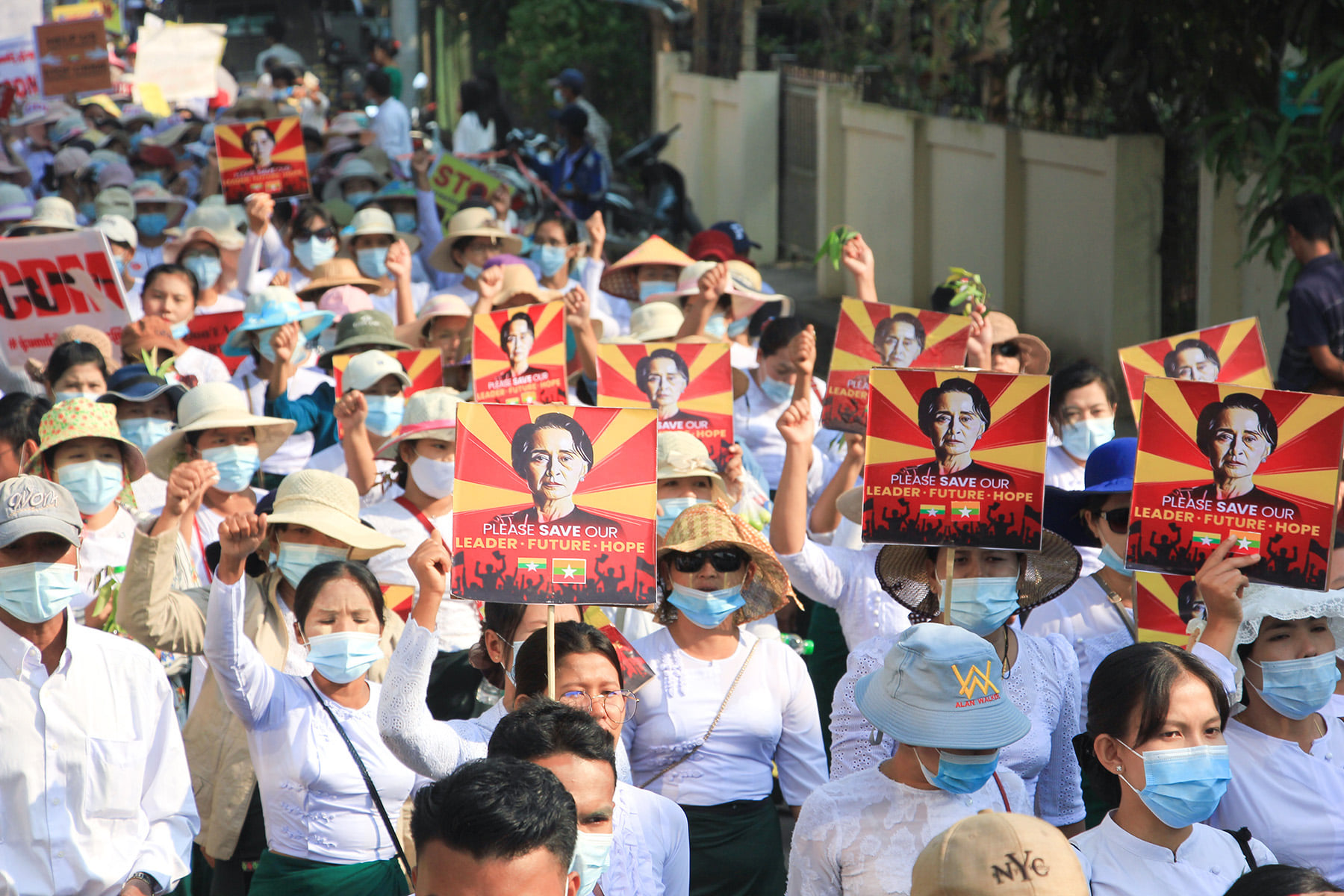
Myanmar’s National Unity Government (NUG) is working on plans to build a parallel education system for students who do not want to study at junta-controlled schools and universities.
Ja Htoi Pan, the deputy education minister for the government-in-hiding, told Myanmar Now that home schooling would be among numerous alternatives available under the plan.
It is the latest contribution to efforts to build alternative institutions to those now controlled by the military, a tactic aimed at preventing the coup regime from governing and at starving it of legitimacy.
“As an educational service provided in an unusual situation, we have to think of different methods,” Ja Htoi Pan said. “We have to think about how to make education accessible to the general public. We are figuring out what the best way is.”
The NUG, which was formed by ousted lawmakers to rival the junta, will first focus on an interim education plan for final year university students and master’s students, she said.
Teaching guidelines for basic education will also be provided soon, she added.
Speaking about plans for basic education, she said “parents doing home schooling is the best option” and that the NUG would officially recognise this form of teaching.
The junta officially reopened universities on May 5 but many students did not show up.
It has also announced that high schools will reopen on June 1. Parents have pledged not to send their children to the junta’s schools, rallying behind the slogan: “No need for military slave education.”
Ja Htoi Pan urged students to avoid not just state-run schools under the junta’s control but also private schools affiliated with the military.
“They could attend private schools. However, because we are doing total CDM, we do not support the kind of private schools that are somehow connected to the junta,” she said, referring to the Civil Disobedience Movement.
A father of a four-year-old boy told Myanmar Now that as he himself had been educated under a previous dictatorship, he would not let his child study in this junta’s education system. If his child needs to attend a school he will choose a private one, he added.
A teenager who passed his Grade 10 final exams last year said he would only go to university under the elected government of the people. In the meantime, he said will attend different courses to gain knowledge and skills.
“Classrooms are not the only places that can provide education,” he said. “We are looking for education from wherever we can get it.”
A father of a Grade 2 student in Yangon said that he was now teaching his son himself and would hire a teacher later. He will not send his son to the junta’s schools, he added.
The father of another Grade 2 student said he worried there could be a divide in the movement if some people send their children to private schools. “Private schools are not located in rural areas. So it could divide people–CDM will only be successful if everyone does CDM.”
He suggested that the NUG should set up a federal education website and provide daily video lessons.
“Using Zoom will be inconvenient because of frequent power cuts,” he said. “It would be nice to have educational videos on the website.”
Myanmar has roughly nine million school pupils, according to figures for the 2019-2020 academic year. Figures from the junta’s education ministry say the country has 3.5 million university students.
